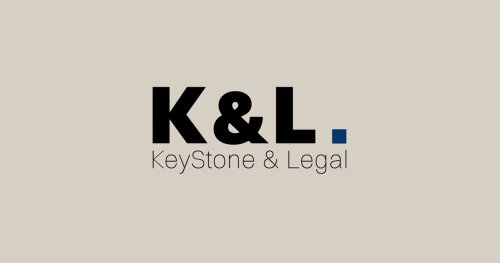Best Business Lawyers in Seoul
Share your needs with us, get contacted by law firms.
Free. Takes 2 min.
List of the best lawyers in Seoul, South Korea
About Business Law in Seoul, South Korea
Business Law in Seoul, South Korea, is a complex landscape with multiple layers owing to its robust economy and vibrant business scene. This dynamic city houses numerous multinational companies and is home to a thriving startup culture. The Business Law in Seoul encompasses rules that govern commercial transactions, mergers and acquisitions, corporate structuring, competition, labor, intellectual property, taxation, and much more. The laws are intended to maintain fair competition, protect customers and employees, encourage economic growth, and sustain an efficient market economy.
Why You May Need a Lawyer
Legal counsel is vital when navigating through the intricate landscape of South Korean business law. Lawyers can assist in starting a business, drafting contracts, handling tax matters, addressing labor disputes, and ensuring compliance with all local and national regulations. Legal assistance is also crucial during mergers and acquisitions, business restructuring or liquidation, and in cases of lawsuits or other legal proceedings. Lawyers also help protect businesses from potential legal risks by advising on preventive actions.
Local Laws Overview
The key aspects of local business laws in Seoul are framed by the Commercial Code, the Monopoly Regulation and Fair Trade Act, and the Foreign Investment Promotion Act, among others. The Commercial Code regulates commercial transactions, the protection of creditors, and aspects of company law. The Monopoly Regulation and Fair Trade Act is designed to prevent the domination of the market by a single entity and to promote competition. It prohibits unfair business practices and regulates mergers and acquisitions. The Foreign Investment Promotion Act provides incentives for foreign investors and ensures protections for their investments.
Frequently Asked Questions
Can foreigners start a business in Seoul?
Yes, foreigners can start a business in Seoul. The South Korean government encourages foreign enterprises and startups by offering incentives through the Foreign Investment Promotion Act. However, certain categories of business may have some restrictions.
What are the basic steps to start a business in Seoul?
The basic steps include creating a business plan, registering the business with the local district office, obtaining necessary licenses and permits, opening a bank account, and hiring employees (if necessary).
What are the labor laws in Seoul?
The Labor Standards Act in South Korea protects the rights of employees concerning working hours, wages, safety, workers compensation, and dispute resolutions. Employers must adhere to these guidelines to avoid penalties and disputes.
What taxes apply to businesses in Seoul?
Businesses in Seoul have to pay Corporate Income tax, Value Added Tax (VAT), and if applicable, Customs duties and excise taxes. Other taxes may also apply depending on the specific business activities.
Who regulates competition in Seoul?
The Fair Trade Commission (FTC) of South Korea regulates competition in Seoul, preventing unfair practices and promoting free and fair competition.
Additional Resources
For more detailed information, consider referring to the Korea Fair Trade Commission (KFTC) website, the Ministry of Economy and Finance for tax regulations, and Invest Seoul for guides on starting a business. Local law firms and chambers of commerce are also excellent resources for networking and finding legal consultation.
Next Steps
If you need legal assistance for your business in Seoul, start by identifying your specific needs. It is also important to find a reputable law firm or attorney specializing in South Korean business law. Ordering a legal consultation can help you understand your legal rights, obligations, and potential risks better. Additionally, familiarizing yourself with Korean business culture and customs can assist in making smoother business transactions.
Lawzana helps you find the best lawyers and law firms in Seoul through a curated and pre-screened list of qualified legal professionals. Our platform offers rankings and detailed profiles of attorneys and law firms, allowing you to compare based on practice areas, including Business, experience, and client feedback.
Each profile includes a description of the firm's areas of practice, client reviews, team members and partners, year of establishment, spoken languages, office locations, contact information, social media presence, and any published articles or resources. Most firms on our platform speak English and are experienced in both local and international legal matters.
Get a quote from top-rated law firms in Seoul, South Korea — quickly, securely, and without unnecessary hassle.
Disclaimer:
The information provided on this page is for general informational purposes only and does not constitute legal advice. While we strive to ensure the accuracy and relevance of the content, legal information may change over time, and interpretations of the law can vary. You should always consult with a qualified legal professional for advice specific to your situation.
We disclaim all liability for actions taken or not taken based on the content of this page. If you believe any information is incorrect or outdated, please contact us, and we will review and update it where appropriate.
Browse business law firms by service in Seoul, South Korea
Seoul, South Korea Attorneys in related practice areas.
















